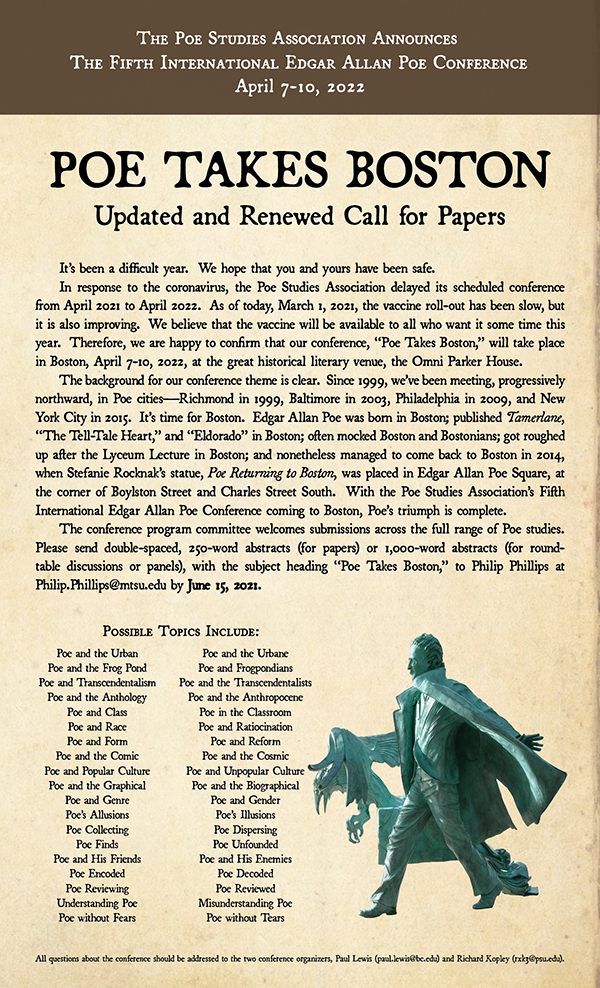Celebrating 215 years of Edgar Allan Poe
deadline for submissions:
September 13, 2024
full name / name of organization:
Noah Gallego (California Polytechnic State University, Pomona)
contact email:
eap215conference@gmail.com
source: https://call-for-papers.sas.upenn.edu/cfp/2024/01/09/celebrating-215-years-of-edgar-allan-poe
Deadline: September 13, 2024
Conference Date: October 5, 2024
Format: Online (via Zoom)
Abstract: 200 words + short biographical statement + timezone
Submit to: eap215conference@gmail.com
Ring in the Halloween season by celebrating the life and works of the U.S.’s grandfather of Goth, Edgar Allan Poe! Scholars from across all disciplines are invited to convene for a (tentatively) two-day conference on the weekend of his 215th deathday where we will critically examine the Tomahawk’s works, including his poetry, prose, novel, and essays. (Other media such as theatrical, graphic, televised, or cinematic adaptations of his work may also be considered, provided they relate back to the author’s legacy and work. For instance, any of the Universal Studios adaptations or Scott Cooper’s loosely biographical The Pale Blue Eye (2022) or the recent Mike Flanagan production The Fall of the House of Usher (2023) may be explored).
Lenses through which to consider presentations may include but are not limited to:
- Orientalism
- Psychoanalysis
- Feminism
- Marxism
- Gothic
- Corporeality
- Other-than-human
- Gender, sexuality, and/or queerness
- Spatiality and Temporality
- Race
- Narratology
- New Materialism
- Disability
- Trauma
- Monstrosity and Abjection
- Religion, spirituality, the occult, and theology
- Ecocriticism
- Rhetoric and Poetics
Please submit abstracts of 200 words as well as any and all inquiries to eap215conference@gmail.com. Please also provide a short biographical note of up to 100 words in addition to your timezone in order to best arrange presentation times for those outside of PST. This conference will be held online at no charge. The Zoom link will be sent out the week prior.
Last updated June 17, 2024
